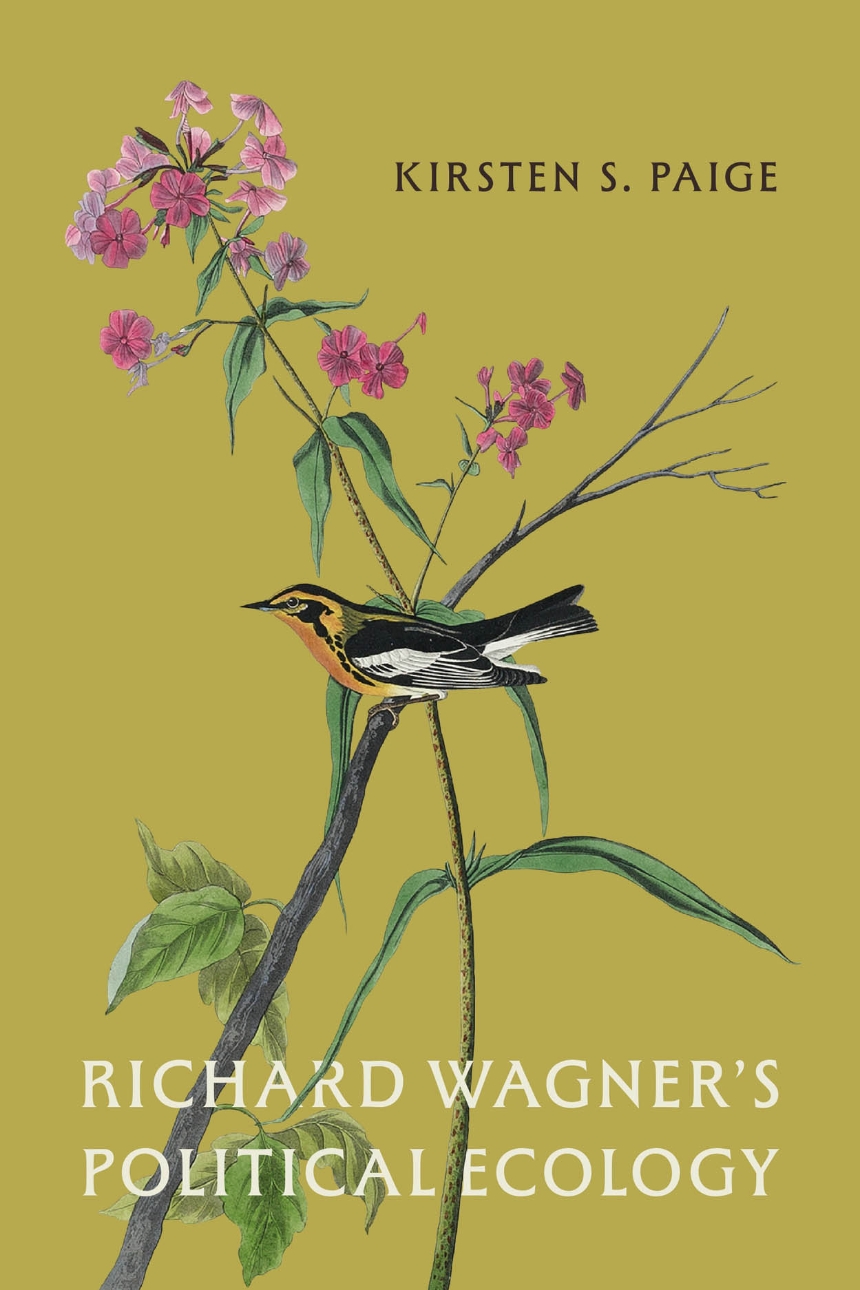Richard Wagner’s Political Ecology
A study of the deep history of the Wagnerian environmental imagination.
Richard Wagner’s operas are bursting with environmental imagery, from tittering birds to flowing rivers to towering trees. In Richard Wagner’s Political Ecology, Kirsten S. Paige asks where Wagner’s environmental imagination came from, how it was received by audience members and reconceived by stage directors, and how it refracts his politics. By tracing the ecological dimensions of the composer’s essays and dramas, Paige reveals how Wagner’s environmental imagination was inextricable from broader political concerns of his time.
The book begins by examining the way Wagner’s political ecology shape-shifted across its rhetorical, musical, scenographic, and technological permutations. Although Wagner’s essays and dramas invite a range of interpretations, for Paige, they point to an all-encompassing image of opera-as-climate. The book then turns to the ways Wagnerian drama—and opera more generally—at once participates in the industrial-technological lineage of climate change and helps spectators grapple with the challenges of living in a warming world. In providing the first close examination of Wagner’s artistic thought, practice, and reception in relation to nineteenth-century climate theory and the early history of environmentalism, Richard Wagner’s Political Ecology considers what it might mean to reimagine opera around ethical mandates of sustainability.
216 pages | 12 halftones | 6 x 9 | © 2026
Opera Lab: Explorations in History, Technology, and Performance
History: Environmental History
Music: General Music
Reviews
Table of Contents
Chapter One. On the Atmospheric Politics of Wagnerian Theater
Chapter Two. Turning Bayreuth Inside Out
Chapter Three. Singing with the Forest: Wagner, the Waldoper, and the Third Reich
Chapter Four. On the Wagnerian Long Now
Chapter Five. Hot Opera
Acknowledgments
Notes
Bibliography
